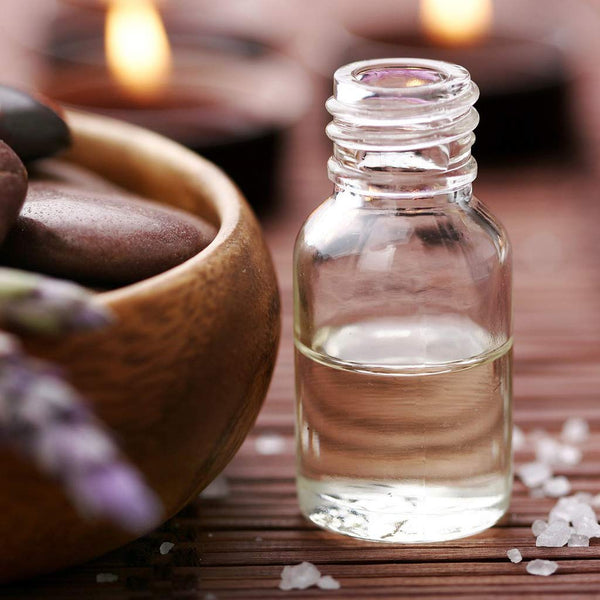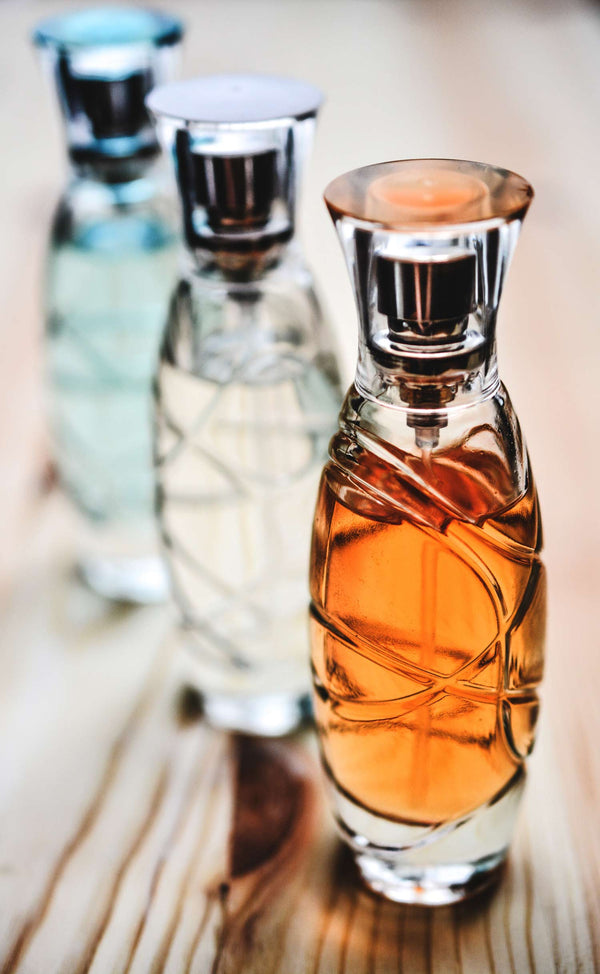
What Is Perfumer's Alcohol and How Is It Used?
You probably recognize the term perfumer’s alcohol, but you may have no idea what it is or why it’s important to consider when mixing your own perfume. After all, perfumer’s alcohol isn’t something that’s typically brought up during coffee break or at the park.
It is, however, something that will be of high value to you as you’re dabbling in the fun of making your own perfume.
In this post, we’ll cover the ins and outs of perfumer’s alcohol, including:
- What is perfumer’s alcohol?
- What is the purpose of alcohol in perfume?
- Alcohol carriers vs. oil carriers
- Perfumer’s alcohol vs. rubbing alcohol
- How do you use perfumer’s alcohol?
- Where can you buy perfumer’s alcohol?
What Is Perfumer's Alcohol?
At risk of sounding redundant, perfumer’s alcohol is exactly what it sounds like -- it is an alcohol used when mixing perfumes. This alcohol is especially good for combining with essential oils and fragrance notes to produce aromatic perfumes.
These perfumes can be used in spray bottles of all sorts, from perfume and cologne bottles to diffusers, and even for household cleaning products, such as window cleaners and air fresheners.
Our perfumer’s alcohol contains only ethanol and is denatured using a substance called Bitrix -- what some might reasonably call the nastiest substance on the planet. Bitrix is used simply for the purposes of making the alcohol undrinkable and for tax reasons.
Complex, science-y names aside, perfumer’s alcohol creates a perfect marriage of absorption and evaporation for all your mixing adventures.
What Is the Purpose of Alcohol in Perfume?
A perfume is made of more than just fragrance. After the fragrance formula has been devised, the raw materials need to be added to a carrier, like perfumer’s alcohol, which acts as a base material that “carries” the scent. A carrier has three functions.
1) Protect The Wearer
Many essential oils and fragrance ingredients are potentially harmful when applied directly to the skin. They can be slightly caustic, contain allergens, affect the way the sunlight interacts with our skin, be irritating, cause rashes, and so on.
Additionally, essential oils often have effects on the body based on the nature of the plant from which they were derived. While some effects are positive, like the healing power of lavender, even good things can be bad in large doses. Diluting the oils in a carrier like perfumer’s alcohol can reduce these problems.
2) Lift and Carry the Scent
The carrier you use will influence the length of time a perfume lasts and the range at which others can smell it.
For example, an alcohol carrier will carry the scent further because the alcohol evaporates off and takes some of the fragrance with it. On the other hand, an oil carrier will keep the scent close to your skin because the oil soaks into your pores.
3) Dilute the Fragrance
Many fragrance ingredients are quite pungent on their own; the scent is often too strong to wear without a carrier—even if the fragrance ingredients are safe—and many of us would prefer not to rudely announce our presence with a thick cloud of fragrance trailing in our wake.
What we seek is a subtle enhancement to our general aroma, and that requires toning down the fragrance we wear with a diluent as a base.
Alcohol Carriers vs. Oil Carriers
Should you use perfumer’s alcohol or fractionated coconut oil to carry your fragrance? Well, that depends. Oils keep the fragrance close to your skin and are less harsh than alcohol. Alcohol, on the other hand, is best for fully diluting your ingredients and functions as a preservative.
Most importantly, if you want to be able to spray your perfume, oil won’t suit as a base.
Perfumer’s Alcohol vs. Rubbing Alcohol
If you choose alcohol, you can’t just hop on over to the liquor store and pick up a fifth. That alcohol is too watery. You need something much stronger, like perfumer’s alcohol.
Perfumer’s alcohol is ethanol, whereas rubbing alcohol is isopropyl alcohol. This creates distinct qualities for perfumer’s alcohol, one of which is the smell -- or rather, lack of smell. Perfumer’s alcohol has less of a chemical odor to it, and sometimes is compared to Everclear or unflavored moonshine.
Some say rubbing alcohol carries an odor, which isn’t exactly a great thing when you’re trying to create aromas! More importantly, rubbing alcohol isn’t used in perfumery because it is diluted and evaporates too quickly.
As far as perfumes go, the higher the proof of alcohol, the better. Since alcohol and its evaporative qualities are what matters, the more pure the alcohol, the better.
How Do I Use Perfumer’s Alcohol?
Perfumer’s alcohol has a wide variety of applications, from making perfumes and colognes to even being used in diffuser fragrance oils and hand sanitizer. In the realm of perfumery, the simple combination of perfumer’s alcohol and essential oils or fragrance notes opens a door to creating your very own scent.
Below are a handful of ways to make use of perfumer’s alcohol, including perfume recipes, hand sanitizer, and glass cleaner. Happy experimenting!
Mixing Your Signature Scent with Perfumer’s Alcohol
If you’re not sure where to start when mixing your own perfume, try your hand at a few of these simple recipes. They are given in ratios (x:100), so you can calculate your own proportion.
In addition, for ease of reference we’ve provided the correct amounts for our 9ml and 30ml perfume bottles.
Vibrant - A Crisp, Summer Scent
| Ratio/ Drops | 9ml Bottle | 30ml Bottle | |
|---|---|---|---|
| Apple | 24 | 2.16 ml | 7.2 ml |
| Herbaceous | 20 | 1.8 ml | 6.0 ml |
| Cedarwood | 14 | 1.26 ml | 4.2 ml |
| Amber | 2 | .18 ml | .6 ml |
| Perfumer's Alc. | 50 | 4.5 ml | 15 ml |
Water Sprite - A Fun, Light Floral Scent
| Ratio/ Drops | 9ml Bottle | 30ml Bottle | |
|---|---|---|---|
| Fresh Water | 10 | .9 ml | 3.0 ml |
| Lilac | 10 | .9 ml | 3.0 ml |
| Herbaceous | 8 | .72 ml | 2.4 ml |
| Ginger EO | 4 | .36 ml | 1.2 ml |
| White Musk | 8 | .72 ml | 2.4 ml |
| Perfumer's Alc. | 60 | 5.4 ml | 18 ml |
Freshly Picked Flowers - A Scent From Mother Earth
| Ratio/ Drops | 9ml Bottle | 30ml Bottle | |
|---|---|---|---|
| Fresh Dirt | 10 | 6.0 ml | 3.0 ml |
| Jasmine | 7 | 0.6 ml | 2.1 ml |
| Gardenia | 6 | 0.5 ml | 1.8 ml |
| Rose | 5 | 0.5 ml | 1.5 ml |
| Vanilla | 2 | 0.2 ml | .6 ml |
| Perfumer's Alc. | 60 | 5.4 ml | 9 ml |
Making Hand Sanitizer with Perfumer’s Alcohol
It’s quite a popular time to stock up on hand sanitizer, to say the least. If you’re having trouble finding it in stores, how about making your own? You can even customize the fragrance to your liking by adding essential oils.
Or get the best of both worlds in one swoop with our Hand Sanitizer Perfume Kit.
Supplies Needed:
- 1-ounce rectangle perfume bottle
- 4 tsp Perfumer’s Alcohol
- 1/2 tbsp Aloe Vera gel
- 1/2 tsp of Fractionated Coconut Oil
- 20-40 drops of essential oil
This recipe includes at least 60% alcohol content, as advised by the CDC.
Instructions:
Combine ingredients in your 1-ounce perfume bottle. Spray enough sanitizer to cover both hands entirely. Rub your hands together (both sides and in between fingers) until dry. Lemon, Peppermint, Tea Tree, Clove, Cinnamon and Eucalyptus are excellent essential oils to use in your hand sanitizer. Not only do they smell amazing, but they have cleansing properties as well.
Making Glass Cleaner with Perfumer’s Alcohol
We weren’t lying when we said perfumer’s alcohol has a wide variety of uses. You can even use it as a base in your very own glass cleaner, which works for cleaning windows, mirrors and glass furniture around your home.
Supplies Needed
- 8-ounce glass spray bottle
- 3 tbsp Perfumer’s Alcohol
- 2 tbsp White Vinegar
- 1 tsp Cornstarch
- 5 drops of a fruity/citrus oil (orange, bergamot, or lemon)
- Distilled Water
Instructions:
Combine all ingredients in your glass spray bottle, top with distilled water and shake. Spray down your glass surface and wipe using a microfibre cloth.
The alcohol allows your solution to be sprayed and to quickly evaporate. The vinegar loosens any film, residue, or smudges for that squeaky clean look. The corn starch acts as a buffer to give that polished and streak-free appearance. Fruity essential oils bring the fresh aroma properties.
Where To Buy Perfumers’ Alcohol?
As fate would have it, you can buy perfumer’s alcohol online right here at Vetiver Aromatics. We carry a variety of sizes, from 2-ounces to 32-ounces. You’ll also find that many of our perfume kits offer the option of including perfumer’s alcohol as your choice of carrier.
When purchasing perfumer’s alcohol, make sure you buy from a credible seller. Since the alcohol percentages and ratios can differ, it is always best to purchase perfumer’s alcohol from companies who are actually involved in making perfumes.
What Are the Limits on Buying Perfumer’s Alcohol?
Different countries have different laws in regards to alcohol. Because of this, perfumer’s alcohol cannot be shipped internationally.
Also, since this solution has such a high alcohol percentage, you are limited in how much you can purchase (at a time) without a license.
Currently, the legal limit for a non-licensed buyer is 128 ounces. If you wish to purchase more than five gallons of perfumer’s alcohol in a year, you’ll need a permit with the Tax and Trade Bureau of the US.



